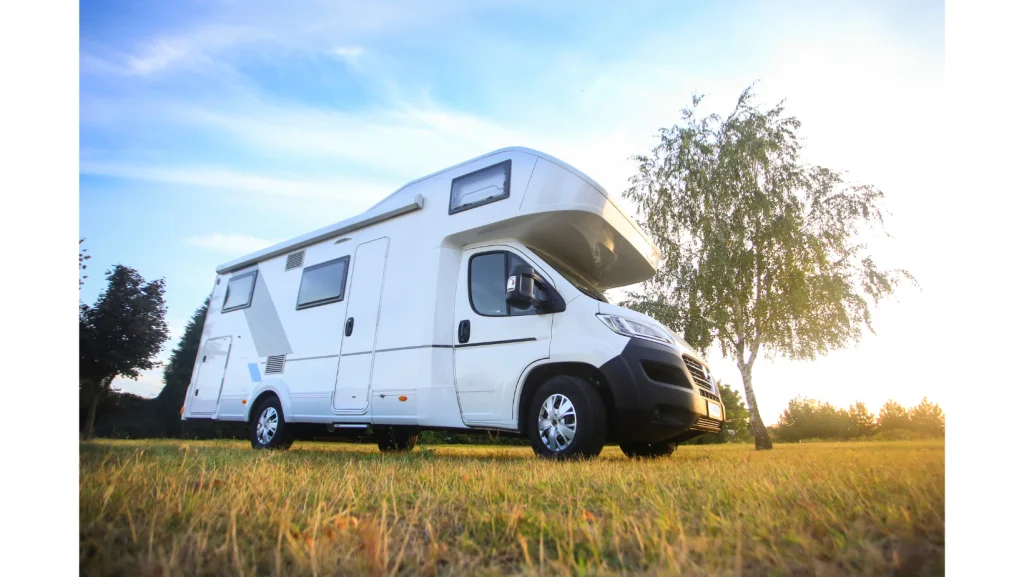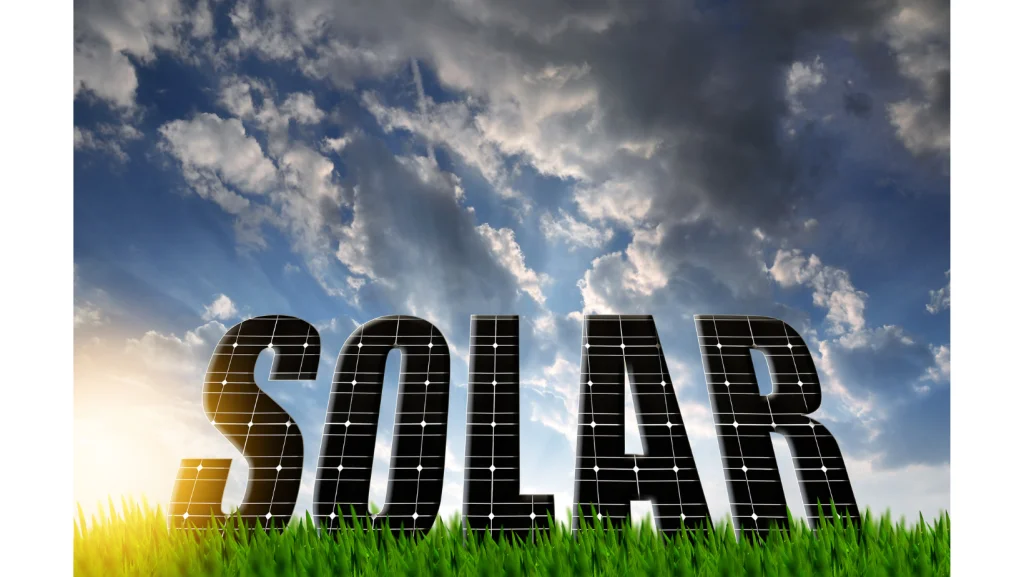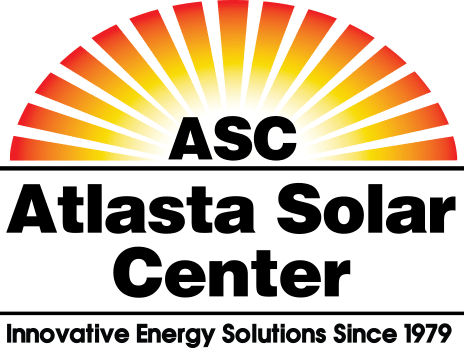At Atlasta Solar, we’re all about educating our customers so you can choose the right options for your RV. In this blog we explain the basics of solar panel types and components, so you know what to look for when it comes to choosing the best RV solar panels and best RV solar panel kits.
You may also be interested in our other articles for RV solar panels:

Best Solar Panels for RV : Types
Before we dive into different RV panel setups and kits, it’s important to understand the different types of RV solar panels. Most RV solar panels come in three categories: monocrystalline, polycrystalline, and amorphous.
Monocrystalline: “Mono” means one, so monocrystalline panels are composed from a single large silicon crystal. Out of the three types these are the most efficient in generating energy, and are therefore the most expensive.
Ideal For: RVs that have little roof space. Why? As monocrystalline panels are the highest performing panel, not as much space is needed, as fewer panels are required to generate electricity.
Polycrystalline: Unlike monocrystalline panels, polycrystalline panels have several small solar crystals, with the panels themselves cast from silicon. These produce about 1% less power than monocrystalline panels, but are reliable and are the most common type of solar panel.
Ideal For: RV owners who want reliable performance but also want to save on cost on RV solar panels.
Amorphous: Also referred to as a thin panel, amorphous panels are composed of silicon. On the plus side these panels are inexpensive to manufacture and the easiest to install, and are therefore the cheapest option. The downside is that amorphous panels have the lowest power yield of the three solar panel types. As a result, amorphous panels require 3 times the roof space of monocrystalline and polycrystalline panels, to reach the same power yield. Of the three options, amorphous are often considered the most attractive solar panel, with their all black, sleek design.
Ideal For: RV owners who want the most cost friendly option for RV solar panels. Keep in mind however that your RV must have plenty of roof space to install thin panels.

Ask the Experts
Now you know the basic types of RV solar panels. However, it is important to emphasize that not all solar panels are equal. For example, if you decide to purchase the cheapest possible solar panels or solar kits online, you get what you pay for, which is to say, decreased lifespan and energy output. When it comes to considering and purchasing solar panels, ask the experts: us! At Atlasta Solar, we know all about solar panels and sell quality products, so your RV can be efficiently powered.
Other Essential Components
In order for a solar panel to generate power, these three components are required:
Solar battery
This stores the energy generated by solar panels.
Charge controller
As the name suggests, this component controls and protects the storage system from overcharging. You can think of the charge controller as the “brain” of the solar setup, as this component regulates the charge and current to the batteries, from the energy supplied from the solar panels.
Solar inverter
This component converts solar energy from DC to AC power.
While you can purchase these items individually, many solar panels come bundled as kits that include these items.
Size of Solar Kits
Another key component to having the bets solar panels for your RV? Knowing which type of solar kit you need: small, medium, or large. This is based off what you’re trying to accomplish, such as occasional RV use, to frequent or full time RV living.
Small Solar Setup
The majority of RVs and campers already have batteries installed, which are similar to the batteries in your car. However, these batteries are usually not deep cycle batteries, which are the type best suited for solar applications when they are charged during daylight hours. Standard RV batteries generally are not powerful enough to run everything off-grid, so a small solar setup is ideal. This usually entails a solar briefcase or portable kit, that can recharge non-deep cycle batteries within a day. Just as the name implies, solar portable kits are easily transported and deployed, and can be stowed away when not in use.
Portable solar kits are also a great option if your RV presents limited roof space, or if you don’t want to have roof mounted solar panels for your RV. We are proud to carry Sunwanderer portable kits.
Medium Solar Setup
What are the best solar panels for an RV, if you live in your RV or camper fulltime? The answer is often a medium solar setup, which entails upgrading existing batteries to deep cycle batteries, which almost immediately doubles the capacity of your batteries. This can be utilized with an RV solar kit, or with a full installation.
Large Solar Setup
Is it possible to check up on your solar setup from your phone? With a large solar setup you can! This setup is ideal if you live in a motorhome or motorcoach, and entails lithium batteries and Bluetooth components. What makes this setup especially unique is that we design the system ourselves, as we take into consideration how much electricity the owner wants to use.
Can I Use Residential Panels on My RV?
We do not recommend that you use residential panels for your RV, as these panels are often too large to install on a RV. Also, residential panels may not be voltage compatible with the other components of an RV solar system.
Here For Your RV Solar Needs
No matter which set up you require, Atlasta Solar carries a wide variety of RV solar components, so reach out if you have further questions. Whether you’re a seasoned “boondocker” (RVing off-grid) or are new to the RV world, we can help you find the best solar panel options for your needs.
